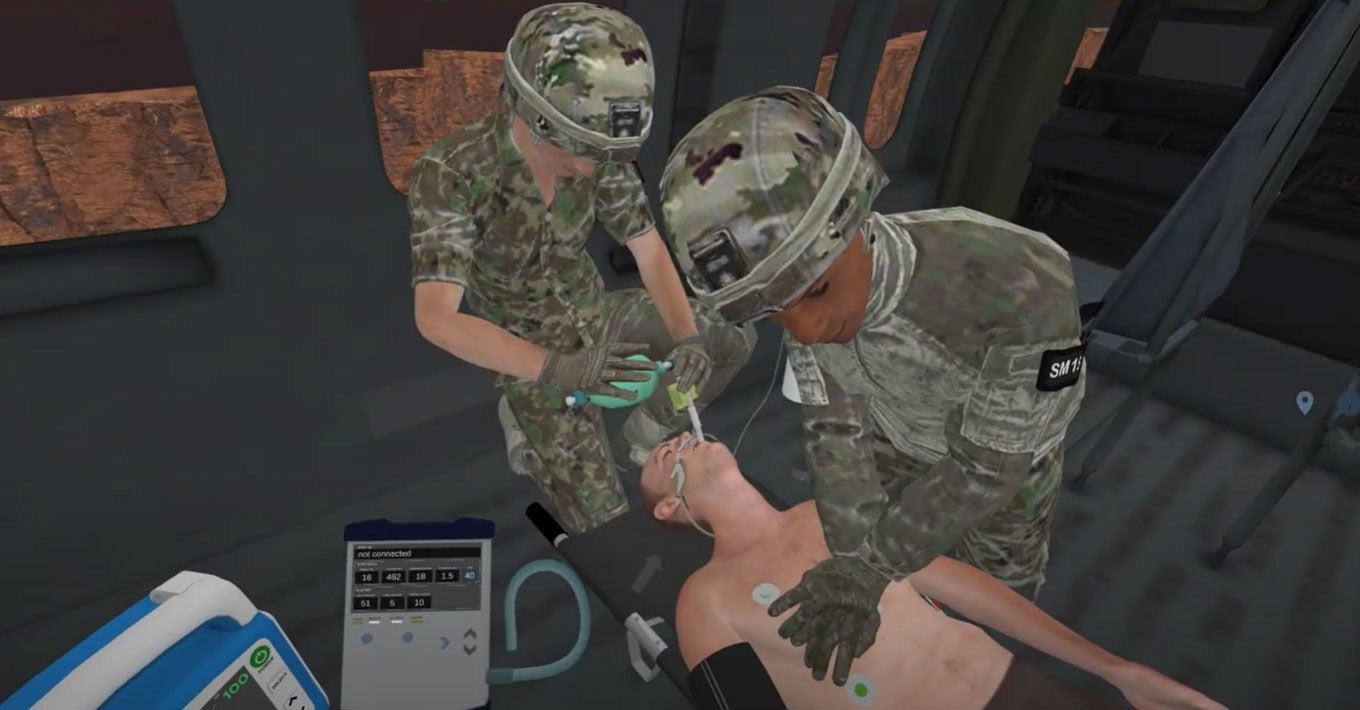
SimX, Inc. has been awarded an R&D contract by the U.S. Air Force to develop enhanced VR medical simulation training capabilities for battlefield tactical combat casualty care (TCCC), with a focus on enhanced flexibility and repeatability of training.
The program will focus on adapting existing SimX Virtual Reality Medical Simulation System (VRMSS) with enhanced capabilities that will significantly increase the utility across DOD medical training.
Project enhancements will leverage the adaptation of the VRMSS for the new Qualcomm Snapdragon XR2 chipset using the HTC Vive Focus 3 headset platform, which will enable significantly enhanced graphical realism while maintaining portability, wireless operation, and seamless co-located multiplayer simulation.
“The vision of the VALOR program is to adapt VR medical simulation training to enable high-quality, repeatable, and accessible clinical training for any scenario,” said Karthik V Sarma, PhD, VALOR Principal Investigator and SimX CTO. “We’re excited to work with the USAF and HTC to develop the next generation of medical simulation training.”
The program’s goals include enhancing medical realism, supporting customizable capabilities at runtime based on the learner population, dynamically configuring environments to enhance the spectrum of psychosocial realism (i.e., weather effects, day/night operations, night vision capability), and on-the-fly scenario tailoring to meet educational objectives. The developed capabilities will also be made available for commercial use to support civilian medical simulation training across the spectrum of health professionals, with enhancements delivered to hundreds of SimX’s existing customers including nursing schools, physician training programs, EMS providers, and many more.
“The mission impact of this project will be increased overall medical capability for combat casualty care. These capabilities are critical for ensuring the highest level of medical care provided by our forces as they prepare for the continuing increase in operational tempo, near peer competition, and joint operations,” said Col John R. Dorsch, DO, USAF (ret.), former USAF Pararescue Medical Director and Wing Surgeon of the 24th Special Operations Wing.
Source: Company Press Release






